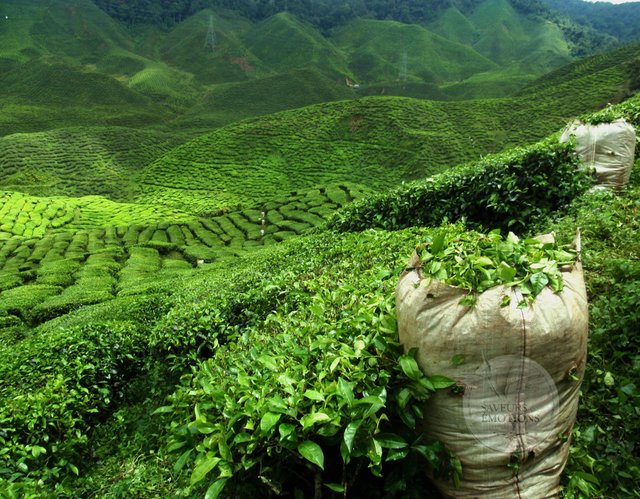Discovery of a tea tree naturally low in caffeine

If you're like most adults, caffeine is part of your everyday life.
Knowing the caffeine content of your favorite beverage to better control your caffeine intake may therefore be of interest to your health.
The actual caffeine content of a cup of coffee or tea can vary considerably because of factors such as origin, treatment and method of preparation, including preparation time.
For example, an espresso coffee contains about 47-64 mg of caffeine, a green tea: 25 to 29 mg and a black tea: 25 to 48 mg.
Note that if your caffeine intake totals more than 400 milligrams (mg) per day, you may consider reducing your consumption.
Caffeine is good for your health, but an excess can create various disorders: headaches, agitation, anxiety, etc.
People who want to reduce their caffeine intake without having to go without their tea or their daily coffee often turn to decaffeinated coffee and tea.
However, these caffeine-free beverages sometimes go through unhealthy and potentially harmful treatments.
In order to overcome this problem, especially for tea, researchers have discovered a variety of tea with a very low or no caffeine content.

LOW WILD CAFFEINE CHINESE THERAPY
Tea drinkers who seek the soothing flavor of this beneficial drink without its explosive caffeine shock may soon have a new option, naturally low in caffeine.
In a study published on October 31, 2018 in the Journal of Agricultural and Food Chemistry, scientists report that a wild tea tree recently discovered in China contains little or no caffeine.
In addition, unlike many decaffeinated products in the industry, this tea could potentially bring many health benefits compared to brewed tea.

HONGYACHA
This is not the first discovery of this kind. In 2011, a tea plant discovered in neighboring Guangdong province contained little or no caffeine.
This plant, known as Camellia ptilophylla, contains compounds that appear promising for the treatment of obesity, although research continues.
This discovery prompted Chinese botanists to look for other people to hide in the country's steepness. The last discovery is one of the results.
Known locally as Hongyacha (HYC), the newly discovered plant grows only between 700 and 1000 meters above sea level around some Chinese alpine villages.
Although Hongyacha has never been the subject of formal laboratory studies, people in the area have been experimenting with its properties for generations and claim that it provides medical benefits ranging from treating colds to reducing fever. going through the relief of stomach pain.

A WILD TEA THAT REGRETS MANY BENEFITS
Hongyacha (HYC) is a type of new wild tea tree discovered in Fujian Province, China.
This tea is useful for healing or preventing the disease in its initial growth area.
However, research on this tea is limited. The results showed that HYC had obvious differences in its morphological characteristics compared to "cocoa tea" (Camellia ptilophylla Chang), a famous caffeine-free tea tree in China.
Analysis of HYC buds and leaves collected during the growing season has identified several abundant potentially health-beneficial compounds not present in ordinary tea, and that HYC contains virtually no caffeine.
The researchers also found HYC is a new type of caffeine-free tea tree that can be used for scientific protection and effective use in the future.
Finally, by digging deeper, they discovered that the peculiarities of this tea come from a mutation in the gene encoding the tea enzyme, caffeine synthase (enzyme methyltransferase involved in the pathway of caffeine biosynthesis), which favors caffeine production in most tea plants.
The researchers conclude that Hongyacha tea, naturally low in caffeine, could eventually become a popular drink because of its distinct composition and unique health benefits.
SOURCES :
- « Hongyacha, a Naturally Caffeine-Free Tea Plant from Fujian, China. », Journal of Agricultural and Food Chemistry, 2018; 66 (43): 11311 DOI: 10.1021/acs.jafc.8b03433
- « Cocoa tea (Camellia ptilophylla Chang), a natural decaffeinated species of tea – Recommendations on the proper way of preparation for consumption. », Journal of Functional Foods, Volume 3, Issue 4, October 2011, Pages 305-312, https://www.sciencedirect.com/science/article/pii/S1756464611000685
We in South Africa have a delicious option for caffeine free and healthy tea in our Rooibos Tea plantations. Something that is indigenous to a few regions in SA. We started a plantation as a community driven project which benefits all the locals and of course ends up with a Tea production which is both delicious and healthy alternative to caffeine filled beverages.
I did a few posts about this project.
https://steemit.com/photography/@michaeljn/community-rooibosbushtea-project-0tbjzuf8
https://steemit.com/photography/@michaeljn/our-heritage-bokkeveld-rooibos-tea--2018-10-03-09-32-01
You could also check it out our website: http://www.bokkeveldrooibos.co.za
Great post :-) Happy Tea Drinking
To listen to the audio version of this article click on the play image.

Brought to you by @tts. If you find it useful please consider upvoting this reply.